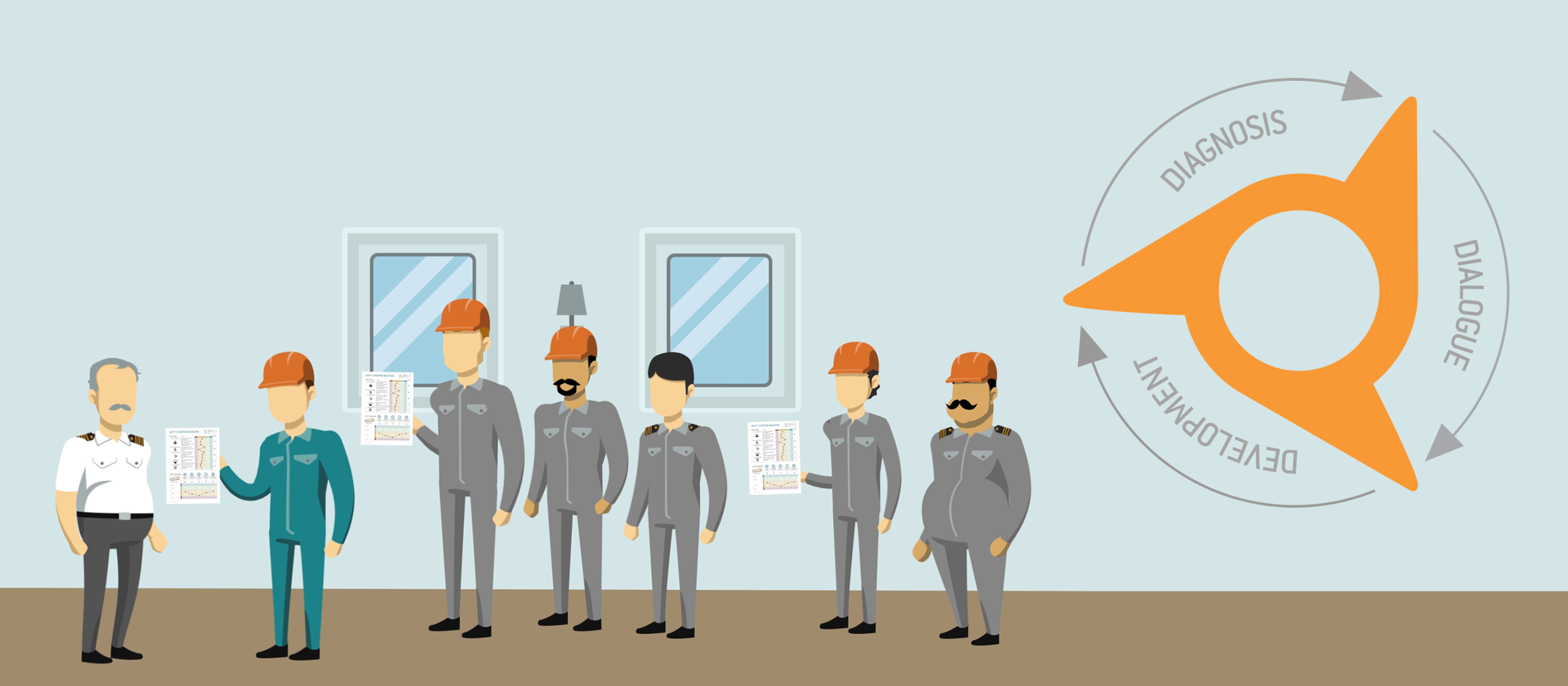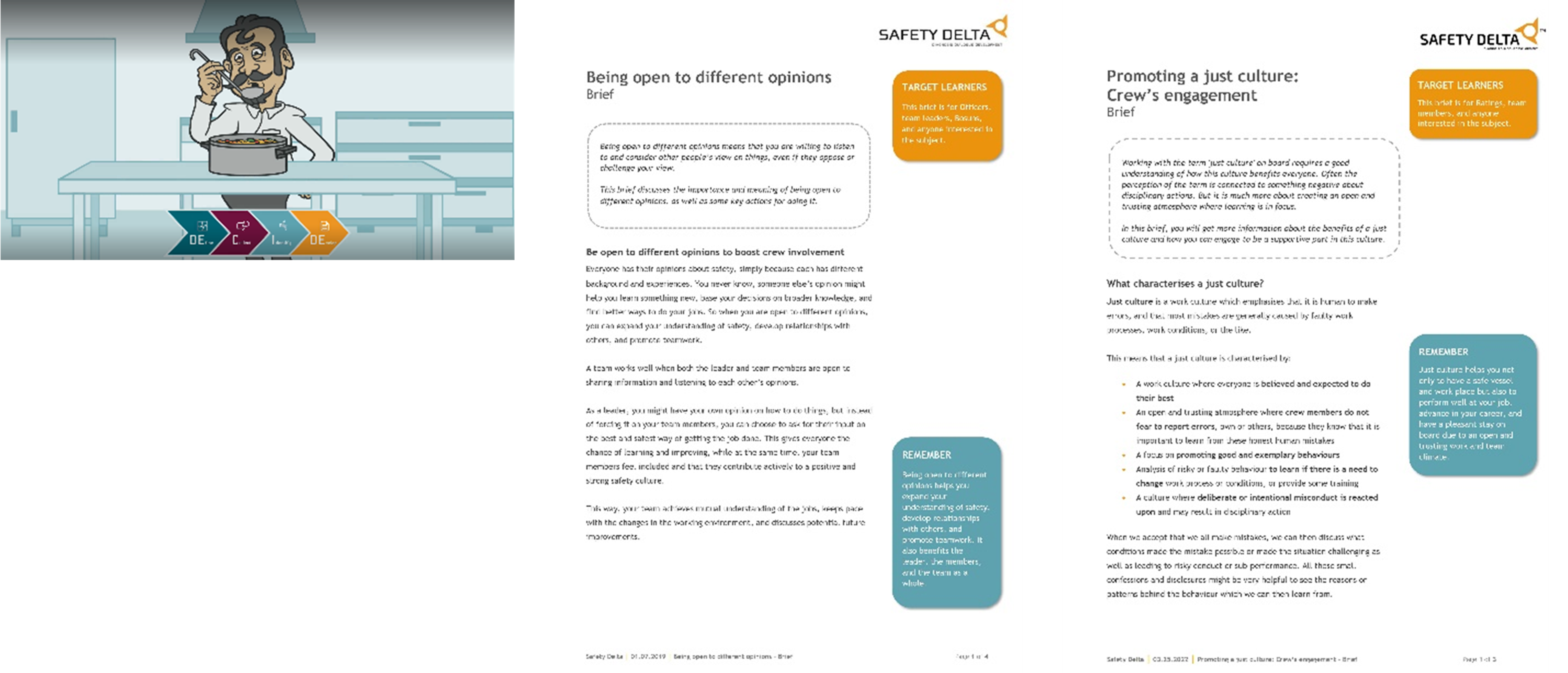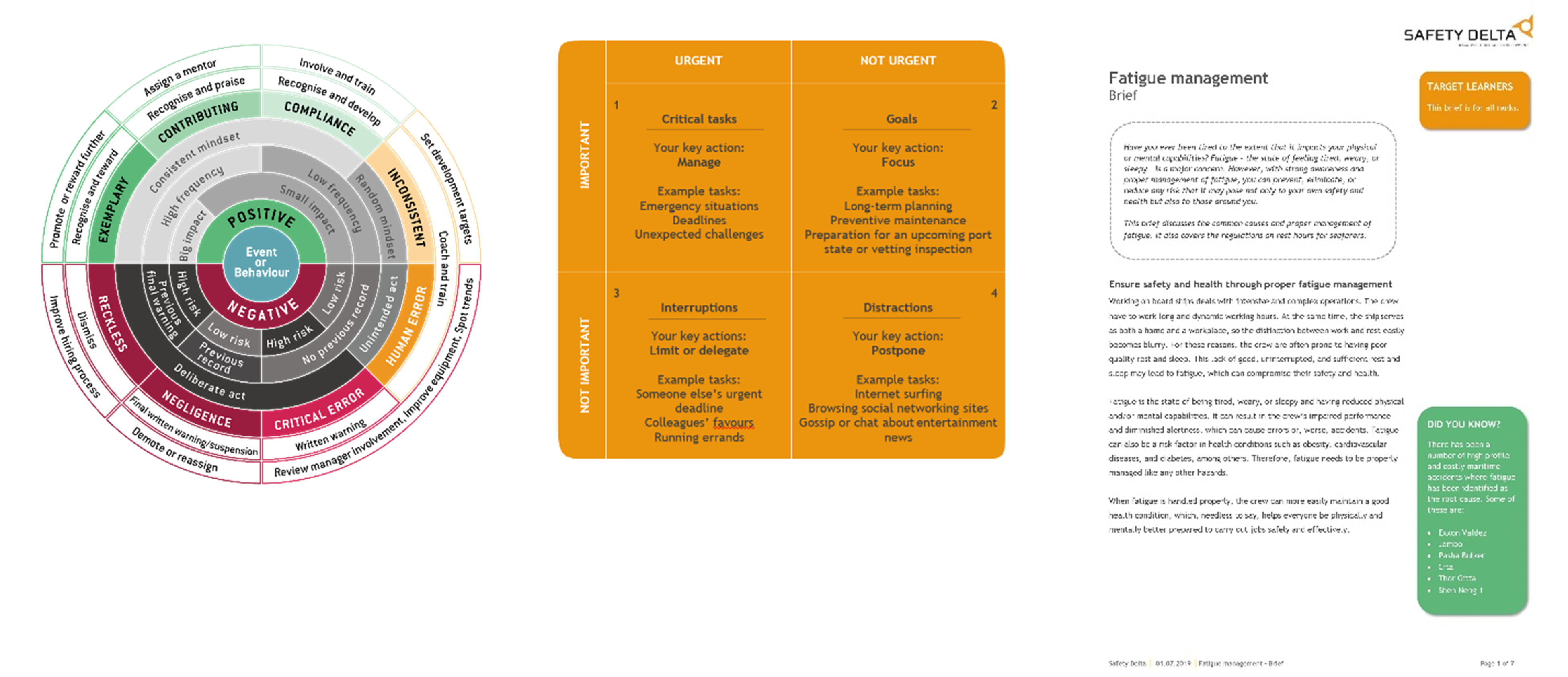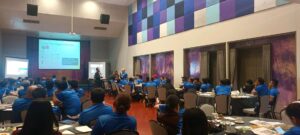SIRE 2.0, TMSA 3, DryBMS. Now that various industry requirements are leaning towards human factors management … is your company prepared?
With Safety Delta, we aim to bring you one step ahead in this aspect.
We go the extra (nautical) mile to help you comply and beyond
Managing human factors is about more than just fulfilling the requirements.
Safety Delta is designed in such a way that it makes human factors management an integrated part of your culture – it is part of every phase (preparation, execution, and finalisation) of every job and embedded in everyone’s behaviours and performance.
The Diagnosis, Dialogue, and Development stages give you opportunities and tools to continuously identify safety gaps, engage in active discussion, and improve your skills and behaviours so you can better manage human factors.

Manage human factors by aligning with industry principles
Below are 4 of the 8 key principles that guide OCIMF’s approach to human factors. You’ll find out how Safety Delta helps you align with these principles, along with some practical tools that you can use.
1 / People will make mistakes
Faced with different and unexpected difficulties on board, both long-serving and newly hired crew can commit mistakes. We often see that bringing awareness of problems and critical work processes is an eye-opener even to experienced seafarers as they are easily ‘blinded’ by busy schedules at work or by overconfidence and complacency.
As a proactive approach to this, Safety Delta fosters a learning culture where people share safety-related information, and a backup culture where people serve as lookout for each other. The Safety Delta cycle also allows turning experiences into new learnings, and learnings into actions.
Some SDLL tools that you can use:

2 / People’s actions are rarely malicious and usually make sense to them at the time
The crew often need to make sensible adjustments according to the demands of the circumstances. Reality on board will show itself, and it takes a mind to make judgements about it. Safety Delta helps the crew to make sound decisions – whether intuitive (instant) or analytic (thorough) – by considering and dealing with the criticality level, urgency, ideas from the team, and human factors.
Safety Delta also creates an open culture where people positively handle different suggested solutions to the challenge at hand, as well as a just culture where people do not fear to report errors because they value learning from these honest mistakes.
Some SDLL tools that you can use:

3 / Mistakes are typically due to conditions and systems that make work difficult
Mistakes usually occur in the interplay of human factors. If we are aware of these factors – the interaction of humans with each other, machines, and processes – we can more easily identify the gaps in an actual work situation.
Safety Delta fosters a just culture where mistakes are seen mainly as a result of unresolved issues such as poor work process, unreliable equipment, or bad management, instead of the crew who ‘made’ the mistake. It also provides ways to make the workplace a safer environment by addressing time pressure, fatigue and stress, mental health, and availability of appropriate PPE.
Some SDLL tools that you can use:

4 / Understanding the condition in which mistakes happen helps us prevent or correct them
The people on board know the condition of their work better than anyone. Safety Delta helps the crew to reflect on their perceptions of the work conditions and prevent mistakes before anything goes wrong.
The SDLL materials cover the following skills and behaviours to sharpen safety awareness and deal with emerging situations: situational awareness, hazard identification, seeking and sharing insight, intervention in unsafe situations or actions, and team communication.
Some SDLL tools that you can use:

Enjoy using all the learning materials as you carry on with your Safety Delta cycles!
In Part 2 of this article, we will talk about OCIMF’s four other principles of human factors and how Safety Delta helps you align with them. Stay tuned!
News in the Safety Delta universe
We have a new Safety Delta Key Account Manager

Join us in congratulating our new Key Account Manager, Lennart Ripke! Before joining the maritime learning and development industry, he was a mariner with several years of experience as a deck officer on chemical tankers.
Stepping into his new role, Lennart aims to leverage his vast experience in the learning and development industry to provide knowledgeable help and advice for your Safety Delta journey. You are always most welcome to contact Lennart.
The Safety Delta seminar for UltraShip was held with great success

Last October 26, we conducted a presentation for UltraShip. The topics were about Safety Delta refresher, updates, and how it can help them prepare for SIRE 2.0. Based on the responses we got, the seafarers seem to have embraced Safety Delta and made it part of their culture.
One notable thing to mention is the managers’ remarks that the ratings are now more open to engaging in conversations with the managers and are not afraid to speak up. Way to go, UltraShip! We look forward to more great news about your Safety Delta experience.
Safety Delta familiarisation webinars
Our free Safety Delta familiarisation webinars are still ongoing. Catch them on these dates:
- Safety Delta Familiarisation I (Introduction and Diagnosis)
- Safety Delta Familiarisation II (Dialogue and Development)
Among Us is a monthly digital newsletter, primarily for Safety Delta members, but also for those who want to get a ‘sneak peek’ at the experiences gained by those of us who are already ‘insiders’. It also presents the developments of Safety Delta.

